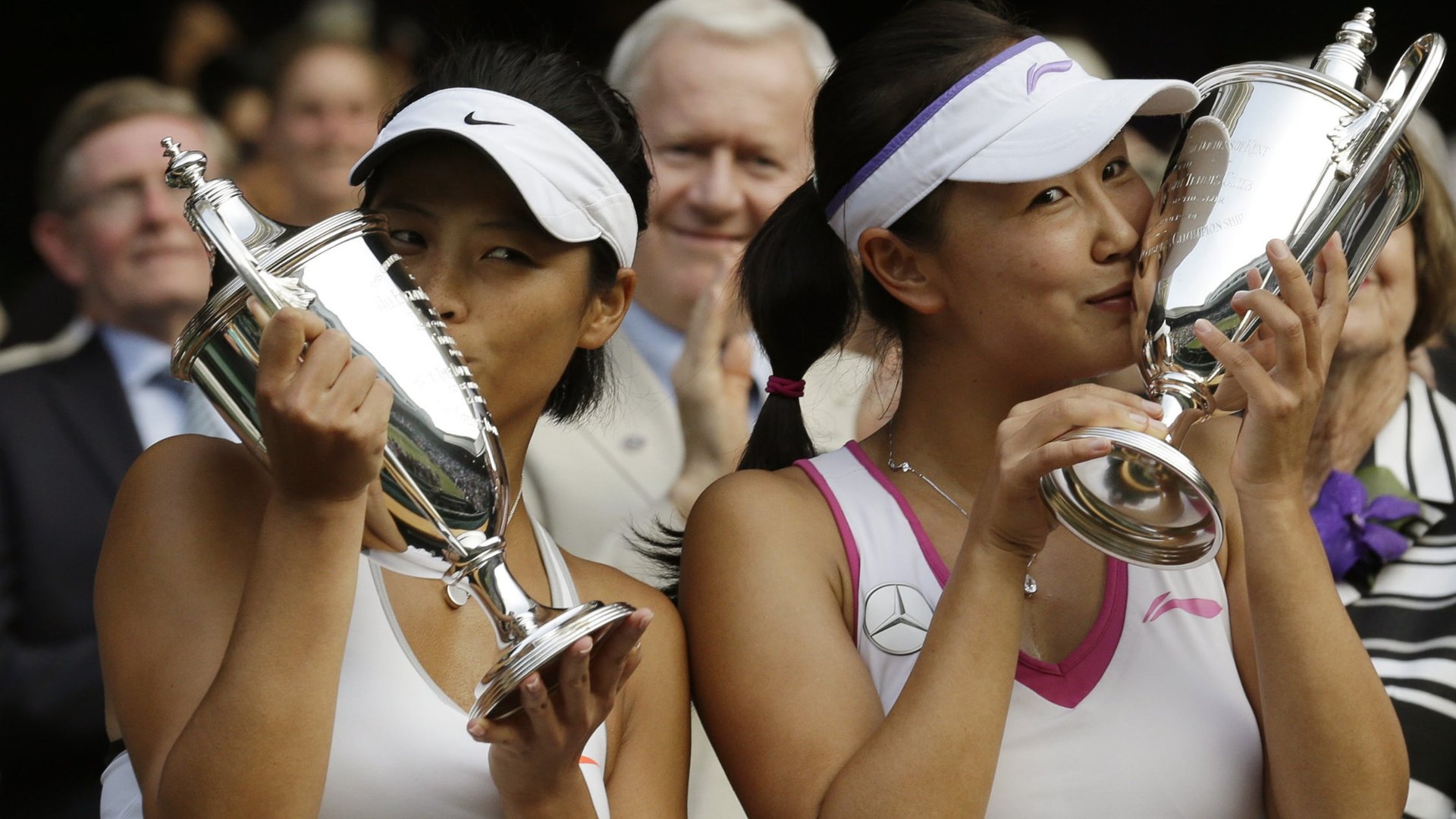China and Taiwan have something new to fight over: tennis sponsorship
This post has been corrected.


This post has been corrected.
Last Saturday, Hsieh Su-wei earned Taiwan its first Wimbledon tennis title when she and her long-time tennis partner, China’s Peng Shuai, won the women’s doubles competition.
And it might be Taiwan’s last. Apparently an unnamed liquor company is offering Hsieh $1.63 million a year to represent Qinghai, a poor province in the far north, in the Chinese National Games.
There’s a catch, though: Hsieh would have to become a Chinese citizen.
To the apparent horror of some in Taiwan, Hsieh’s father said that he and his daughter would be forced to entertain the idea. Hsieh only makes $50,000 in endorsements in Taiwan at present, said her father, though her travel and training regimen cost around $166,000. (Want China Times reports that Hsieh maxed out three credit cards to pay for her coach.)
That kicked up a ruckus. Lee Ying-yuan, a legislator from the Democratic Progressive Party—which is generally anti-China—exhorted Taiwanese president Ma Ying-jeou to do whatever it took to keep Hsieh from emigrating. Her flight, said Lee, could set off ”a domino effect” of Taiwanese athletes competing for China in order to bring in more endorsements, as the Taipei Times reports.
Now a group of Taiwanese business leaders that includes Hsu An-hsuan, chairman of Taiwan Tobacco & Liquor Co., has announced plans to for a $6.62 million platform to support Taiwanese athletes. Hsu said he was also considering sponsoring Hsieh individually.
Meanwhile, back in Qinghai, the deputy director of the provincial sports bureau said that he hadn’t been apprised of the offer by the liquor firm and that, since both Qinghai’s tennis game and its finances were really pretty low, it wouldn’t make sense to “spend such a big sum of money getting top-name players to help us in the Chinese National Games” (link in Chinese).
Hsieh’s not the first to face this kind of pressure. As China-focused sports blog The Li-Ning Tower points out, the 2005 world pool champion, Wu Chia-ching, emigrated to China in 2011, ostensibly to be able to enter more competitions. “I know I will not be forgiven by many, but I have to take care of tomorrow’s lunch,” said Wu at the time. Though Taiwanese golfer Yani Tseng has fielded similar offers to swap her Taiwanese passport for a PRC one, she has so far held out.
It’s not clear what Hsieh herself thinks about all this. But though she and Peng were a dynamic duo on the Wimbledon grass, things got a little tenser off Centre Court. When a reporter asked Hsieh what the victory would mean to Taiwan, Peng interrupted, replying that Taiwan isn’t a country. Hsieh eventually took to Facebook with her own views on politicization of her victory. “I won’t play political games with you all,” she wrote. “Sports are sports” (link in Chinese).
Correction: July 11, 9:05 a.m. (EST): The group of Taiwanese business leaders are mulling a $6.62 million platform for elite Taiwanese athletes, not just Hsieh Su-wei, as we originally wrote. Also, Hsieh’s Facebook response appears to be more directed at politicking surrounding her victory, and not, as the Taipei Times implied, solely in response to Peng’s remark about Taiwan’s nationhood.